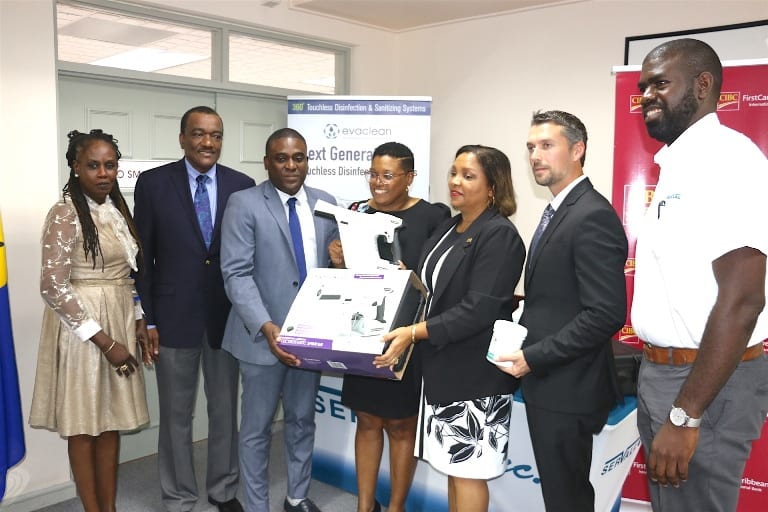
Minister of Health and Wellness, Lt. Colonel Jeffrey Bostic, has underscored the importance of infection prevention and control, while saying Government is continuing to strengthen antimicrobial diagnostics.
While delivering remarks today at the opening ceremony of the Caribbean Infection Control Conference at PAHO, Lt. Colonel Bostic said antimicrobial resistance was an area of enduring interest to his Ministry and the wider world.
“Barbados is benefiting from the triangular cooperation project with the Argentine Government and PAHO to increase capacity in enhanced antimicrobial diagnostic procedures in CARICOM with training, to improve areas ranging from the taking of samples to in-laboratory diagnostic techniques, data-analysis to dissemination,” he said.
He noted that the Barbados National Plan to combat antimicrobial resistance was developed in 2017, and was aligned with the objectives of the global action plan. He added that in 2018, the focus was on Objective 3 of the plan, namely, reducing the incidence of infection through effective sanitation, hygiene and infection prevention measures.
“The Ministry of Health & Wellness undertook a self-assessment audit of IPC [Infection Prevention and Control] in its ambulatory and long-term care facilities to have a baseline and clear path for improvement efforts. This year, the Government of Barbados continues to strengthen antimicrobial diagnostics,” he stated.
Lt. Col. Bostic congratulated employees of the Infection Control Department of the Queen Elizabeth Hospital, saying they had done a lot of work in the area of infection control.
He stated that the department was instrumental in tracking down the cause of a cluster of antibiotic resistant cases in 2013, and then assisted in revealing the risk factors for such disease by research the following year, resulting in recommendations for strengthened infection control measures for the institution.
“Similar monitoring and detective work was also instrumental in revealing a more esoteric cause of infection last year…. The presence of a functioning Antibiotic Stewardship Programme at the institution is also to be commended and these two complementary initiatives will certainly assist in the effort to reduce the generation of resistant organisms at the hospital,” he pointed out.
The Minister is of the opinion that the region would be stronger if response mechanisms were created in a number of areas, including infection control. He said he would be urging his colleague ministers, especially in the Organization of Eastern Caribbean States, to establish such a mechanism.
“We must develop a mechanism similar to the Caribbean Disaster Emergency Management Agency and the Regional Security System that will be able to provide the regulatory framework to mobilize and deploy resources to each other’s country.
“By doing so, we build capacity regionally and domestically because if you have an issue in your country and we send persons to help you deal with your issue, that also gives us experience and exposure to be able to deal with a similar incident in our country,” Lt. Col. Bostic explained.
During the ceremony, CIBC FirstCaribbean International Bank and Servall Inc. presented the Queen Elizabeth Hospital with three cordless electrostatic sprayers and a supply of Purtab tablets.
Director of Regulatory Affairs at the bank, Joannie Worrell, said the machines were a dynamic new product, offering a disinfecting/sanitizing delivery system, which has been described as the “next generation of infection control” in hospitals.
Ms. Worrell explained that the machines could be used after a patient was discharged, prior to a new patient entering the space, or when a room was contaminated.
